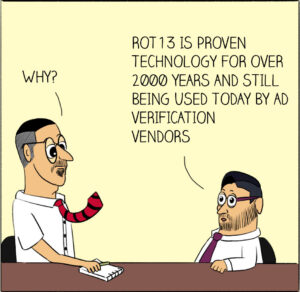On Fraud, Marketing and Defining a Startup’s USP: A CEO’s Perspective – an Interview with Oxford BioChronometrics’ David Scheckel
We had a chance to sit with David Scheckel, CEO of Oxford BioChronometrics, the ad fraud detection company that has received a lot of attention in the marketplace lately. The company is well-known in insurance and legal circles for its no-holds-barred quarterly performance reports of lead affiliates and advertising platforms.
Mr. Scheckel, what is the single hardest thing you had to face when entering the fraud detection space?
 David Scheckel: Running a startup is the best and worst job in the world, at the same time. Idea to company to money, to product to money, to sales to money, to marketing to money, to HR to money, to growth to money, to compliance to money, to scalability to money. It never stops.
David Scheckel: Running a startup is the best and worst job in the world, at the same time. Idea to company to money, to product to money, to sales to money, to marketing to money, to HR to money, to growth to money, to compliance to money, to scalability to money. It never stops.
But the hardest single thing has got to be defining and clarifying your Unique Selling Proposition. Every potential client wants to know what makes you different – why they should choose you. And in the tech world, those answers lie very deep in code, which almost no one outside of hardcore coders and data scientists understand.
Thankfully, we find inspiration in our clients to make our answers clear.
What do you mean? What kind of inspiration are you getting from your clients that helps you make clear what’s unique about your company?
David Scheckel: Our clients are marketers – we help save their budgets and get them real performance data – and marketers are great at creating awesome answers to open questions. I mean, we’ve all seen true marketing magic, when someone has to create a story and answers without ever having a real product. Since we actually have a solid, proven product, we can take their successes we’ve helped with to build our own story.
What’s an example of that? What does that look like in practice?
David Scheckel: We tell our story based on the life of a marketer tasked with lead generation. At Oxford BioChronometrics, we scan for fraud in web sessions to determine if the thing filling out a form, visiting your page or entering a credit card to buy a product is a valid person with intent or not. Simple. A marketer wants those leads to get into the hands of the sales department. And they want those leads to be solid.
But here’s how that has helped us: We used to try to explain why our code was more advanced, why it was not easy to manipulate, and we would explain in detail exactly what we meant by that. We explained why IP addresses don’t work, why fingerprinting is a waste of time, how we infer the user agent by the properties we see within a session rather than going by the stated user agent…
Of course, by the time we were done explaining, the room was asleep –and in one case we actually had someone snoring and drooling – unless there was a fellow ultra-geek in the group (who of course didn’t have signing authority).
We even tried educational blogs, bot definitions, we even came up with silly cartoon ads, that apparently only (CTO) Sander and I believe are funny, but that didn’t work either.
So what did work for you that got you your recent strong traction in the market?
David Scheckel: It seems obvious now, but basically, we already had a strong understanding of who our competitors are, so we decided to look at their code. That was the first thing that got our clients’ attention – it was WAY too easy for us to read the security code for fraud detection companies. In general, their encryption is a joke.
Marketers get data security – they need to keep their lead data clean and, especially in insurance, need to be careful with the information they’ve received. So the fact that we could so easily access what made the other services tick set off alarms.
Aren’t you afraid someone will try to do the same to you now?
David Scheckel: Go ahead and look at ours, sure, you can hack it with enough time, but what will you gain? There is no field where a fraudster can simply insert “I am not a bot” or “we are the greatest” into the code and have it pass through undetected. And seriously, certain solutions are that simple to trick.
We asked ourselves why? How can any serious security company have code that is so easily tricked? Well almost every company in the fraud detection space is run by marketers, not cyber security experts. That’s why our clients had been using those other companies – the founders spoke their language. But the results didn’t match the hype.
And that’s the thing – a great marketer can sell anything, even to another marketer. They speak the same language, know the touchpoints, BUT they do not live and breathe code. They do not hang out on the dark web looking for new tricks – that’s what cyber security experts do.
A great marketer may be able to sell anything, but if the emperor has no clothes, everyone is going to find out sooner or later. And when you’ve got nothing covering you from today’s cyber threats, it’s a rude awakening.
So what was the USP your clients helped you come up with?
David Scheckel: Simple. We are NOT Marketers! We’re cybersecurity experts and we’re here to help marketers. And maybe, they can help us back, because we all think this ad is hilarious!

